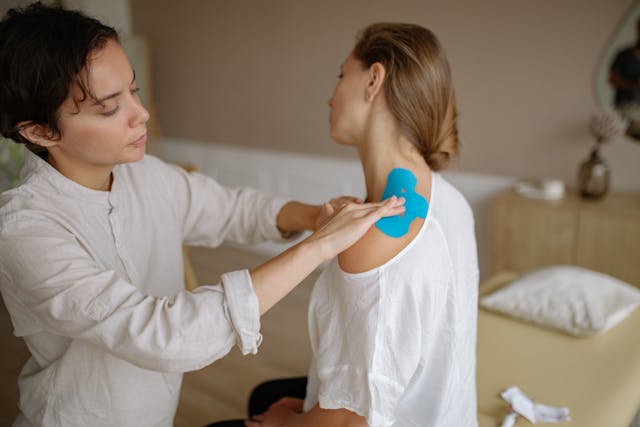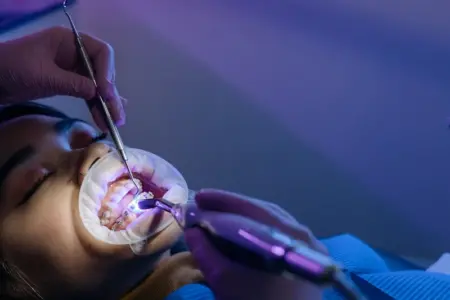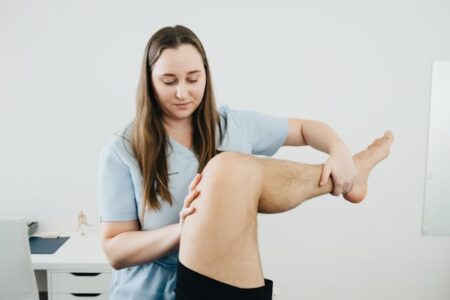Movement disorders can affect daily life by limiting voluntary muscle movements. Understanding the symptoms of each disorder might aid in implementing coping strategies. Here are some different types of movement abnormalities:
Ataxia
This disorder impairs coordination and balance, causing shaky and unsteady movements. Gait impairment could progress without treatment, but physical therapy can strengthen muscles, and stretching routines enhance flexibility. Speech therapy addresses slurred speech, while hand-eye coordination exercises retrain fine motor skills. Prescribed medications aim to restore lost muscle control. Alternative treatments for ataxia focus on maximizing remaining abilities through diet adjustments and lifestyle modifications.
Huntington’s Disease
This genetic condition causes involuntary jerking and writhing movements of limbs and extremities, known as chorea. As the disease progresses, cognitive decline and psychiatric symptoms may begin to emerge. Specialists should help manage movement disorders that come with muscle spasms, speech impairments, memory lapses, anxiety, and depression.
Multiple System Atrophy
Multiple system atrophy (MSA) causes slowness, stiffness, tremors, and loss of balance. It can intensify rapidly as it affects areas controlling movement, blood pressure, breathing, digestion, and bladder function. Early diagnosis occurs after patients faint without warning due to extreme blood pressure drops upon standing.
Myoclonus
Myoclonus involves sudden muscle jerks that interrupt ongoing motions like eating or writing. It occurs from electrical activity misfiring in the brain, spinal cord, or peripheral nerves. Causes of myoclonus range from epilepsy to brain injuries or oxygen deprivation at birth, leading to cerebral palsy. Myoclonic jerks are benign but may cause embarrassment in public and difficulty doing daily tasks. Treatment often includes medications and surgical implantation of devices to block faulty nerve signals in severe cases.
Parkinson’s Disease
Parkinson’s disease damages dopamine-producing brain cells, resulting in tremors, limb stiffness, and impaired balance. Initial symptoms may include subtle hand trembling and decreased arm swing while walking, progressing to a frozen facial expression and shuffling gait. Parkinson’s disease also might lead to speech and writing changes and mood disorders due to altered brain chemistry. Medications help boost diminished dopamine, while therapy assists with coping strategies.
Supranuclear Palsy
Progressive supranuclear palsy (PSP) damages nerve cells that control eye movements, speech, balance, and cognitive processing. Patients have difficulty looking up or down, experience impaired hand-eye coordination, frequent falls, and have trouble swallowing. PSP impacts personality and behavior, frequently leading to emotional outbursts, depression, and withdrawal. Speech, occupational, and physical therapies help PSP patients maintain skills.
Tics
Tic disorders generate repetitive, involuntary muscle movements and vocalizations. Simple tics involve single muscle groups, while complex tics recruit multiple muscle groups. Motor tics include blinking, shrugging, or facial grimacing, while common vocal tics are throat clearing, sniffing, or grunting. Stress, anxiety, or excitement can worsen tics. Behavioral therapy instructs patients on suppressing tics by replacing them with voluntary movements.
Wilson’s Disease
This genetic disorder prevents the body from eliminating excess copper. Copper buildup harms the liver and brain, affecting movement, speech, memory, and cognition. Copper deposits around the cornea, known as Kayser-Fleischer rings, are present in Wilson’s disease patients. Patients experience excessive clumsiness, impaired fine motor skills, tremors, and difficulty speaking. Medications assist the body in removing excess copper before irreparable organ damage occurs. Doctors might recommend monitoring diet to limit copper exposure.
Seek Help for Movement Disorders
Address your symptoms by consulting a specialist at a movement disorders clinic today. Treatments can enhance your quality of life and give you access to therapies like deep brain stimulation. Doctors can help improve your condition with evidence-based solutions tailored to your needs. Contact a movement expert now to receive the support you need.











